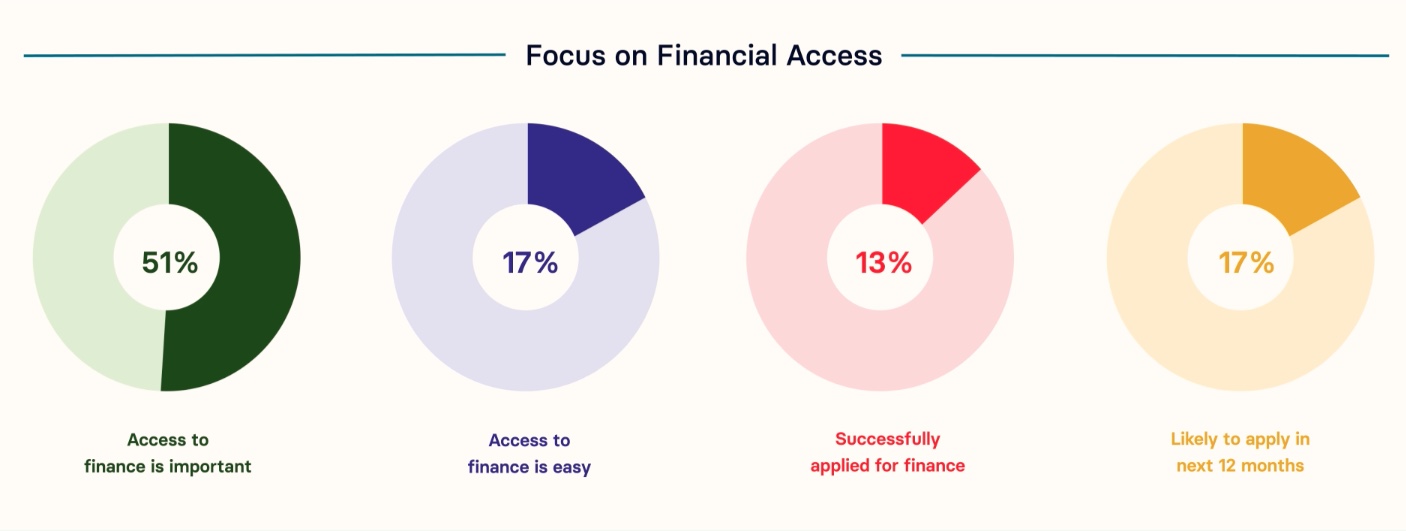Money is always an uncomfortable topic, especially in a social context – and that’s before you’ve even asked for anything. We’re told to keep our business and private life separate, but according to our stats, 27% of new South African small businesses tap family and friends for start-up capital. In fact, getting funding from close acquaintances is often a crucial moment for a new venture – it signals to potential future investors, that people who really know you, trust and believe in you.
And in the meantime, your nearests and dearests will usually be more flexible about repayment plans – and more forgiving should you face some unexpected setbacks. So, how do you get the financial support you need, without jeopardising your most important relationships? Here’s how we approach achieving this delicate, high-stakes balance.

Who to Ask?
Start off by considering all your options: make a list of the people in your life that you feel close enough to, to be able to ask for money. Anyone who is financially vulnerable should be immediately excluded – no matter how much they believe in you, or may want to support you, it’s an unnatural pressure to place on the business and the friendship. Next, place any volatile or combative family members on the “bench” – you can reconsider them later, if needed. First, try to minimize the complex, personal risk of wasting energy on unproductive conflict. When looking at the people who remain, remember to also consider their particular areas of expertise or network of connections, which would ultimately make their involvement more valuable than the rand value of their possible investment.
How to Approach Them?
This can be tricky, because you want your friends and family to know you take them seriously, but you also don’t want to be artificially stiff or formal. Our advice is to look at each “pitch” on an individual basis, and tailor your approach to your chosen audience. Most experts agree that no matter who you approach, always be prepared with a concise document on hand outlining: evidence of your research, how you plan on spending their money, and a key summary of your business plan. This shows that you’re committed and prepared, lending credibility to the entire proposal.
No matter the paperwork, start with a conversation: be real, connect, be passionate, be you and speak from the heart – mostly, people invest in other people they love, because they want to see them succeed, and they believe in their dreams more than a stranger ever could. It’s a fundamentally intimate exchange, with someone you’re stepping into a delicate dance with, so don’t underestimate the value of honoring that connection. But, don’t get overly emotional either: you still need to communicate that you have an objectively great idea, and more importantly, it shouldn’t feel like a guilt-trip, should they choose to turn you down.
How Much to Ask for?
To start with, you need to know how much total funding you’ll need to raise – and divide this between your potential familial supporters appropriately. This figure should include all your start up costs, plus working capital (for at least 6 months), less your own savings contribution – and always with a modest emergency buffer. Struggling? Here’s some detailed advice on making a realistic estimation.
Again, approach each “pitch” on an individual basis: from what you know about them, how much could each person reasonably afford to contribute? Think carefully about what makes the most sense for each personality and unique circumstance (you won’t have this luxury with future investors, so take advantage of it while you can), and be open to a discussion – a large lump sum might be a viable suggestion for a non-risk averse, wealthy uncle, while your hard-working professional friends will have more to lose, and may only feel comfortable with incrementally staggered investments, based on proven performance. The more widely you can spread the financial load, the less risk involved for each individual, but the more complicated the repayment process and the more possibilities for individual relationship dynamics to sour – so again, it’s all about the balance.
What are they getting out of it?
Here the focus needs to be on managing expectations: everyone on board needs to know what they are in for, what the risks are, and what they’ll get (at every possible eventuality) – whether that is the interest they will receive on their loan, some equity in the company, or a product named after them. Whether you write an email every month to keep all your proponents in the loop, or accept specific help from a few close friends with expertise, take care to hold onto your sense of operational independence.
Anyone who has put money into your business will likely feel entitled to give you advice, even when they’re not qualified to do so – be prepared for it, and know how you’re going to manage things if it becomes counterproductive. Thankfully, there are so many different repayment options that could help keep different investors, with different pressures of their own, feeling satisfied and safe: from seasonal repayments (only paying at busy times), offering different interest rates (the longer you take to repay, the more interest they earn), to paying progressively larger instalments as the business grows – the point is to have an array of suitable options on the table, so that everyone ultimately feels satisfied.
What’s the worst that could happen?
For starters, limit the physical role that any of these beloved contributors play in the running of your business – this means clear boundaries being set from the beginning, and only accepting help that you really need. The goal is to be vigilant about protecting your personal relationships from any business-related pressures, wherever possible, and making sure you have done everything in your power to avoid disaster.
Now, it’s time to dwell on the worst that could happen, just for a little: think about what would happen if the business collapsed, you became insolvent, or personal relationships imploded – discuss every possibility with your backers and work out contingency plans now, before things get awkward or involuted. Then, put it all into writing – get a lawyer for this if you can afford it, otherwise try some online legal solutions.
Note that getting out of a business (for whatever reason) becomes infinitely more complex when you have family and friends’ money at stake – plus, whatever happens, you will likely have to keep dealing with the personal consequences of the fallout for many years to come. That’s why it’s so important to make sure everyone is protected, from the outset.







